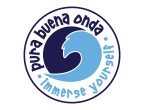A little over 5 weeks ago we started our annual 90-Day Spanish Bootcamp with 22 students. 5 weeks later these 12 students still remain:
A1: Jean E, Rechelle M
A2: Lizzie S
B1.5: Melanie T; Stephanie C
B2: Carol S, Roxie H
B2.5: Eva M
B3: Carolina F
C1: Stephany F
Private Classes: Joy B, Lisa O
Congratulations to you all!
When we asked the students what they were doing for their 20 minutes of speaking and/or listening each day, this is what they told us:
| I have been watching the Destinos program everyday and answering the questions on the activity page. |
| Yo hago varios cosas. Me gusta ver la programa El Barco, escuchar a News in Slow Spanish, escuchar al radio en español, y ver programas de naturaleza y animales en español en YouTube. También yo hablo con mis compañeros de trabajo en español y a veces practico hablando con yo misma. |
| Cada día escucho a un podcast (Radio Ambulante, Nómadas, Futuro Abierto, El Explicador, o Buenos Dias America) por lo menos un hora. Además hablo con un hispanohablante al menos tres veces por semana por un hora. |
| Yo miro El Reyna del Sur en Netflix y escucho al 91.7 en el radio |
| Usualmente, veo veinte minutos de Celia, una telenovela que cuenta la historia de Celia Cruz. También trato de asisitir a eventos donde puedo hablar en español con otras personas afuera de clase y, si no tengo tiempo, hablo con mi misma. |
| Oigo a Radio Latina y “News in Slow Spanish”. Leo voz alto y hablo en español con personas bilingüe en las tiendas. |
| Listened to spanish language radio news and music, as well as a podcast. Also spoke with friends in person and on the phone. |
| Celia netflix show or coffee break spanish is great! |
| I watch a portion of a spanish language movie on hbo, listen to the radio or go to a Spanish language meetup |
| Para mis 20 minutos de hablar o escuchar hablo con amigos por teléfono, hablo con mi mismo, escucho la radio o un podcast y asisto a la clase de grupo o privada. Normalmente trato de hacer más de 20 minutos, pero la semana pasada estaba muy ocupado y sólo podía hacer 20 minutos cada día – sin embargo todavía ¡lo hice! |
| He escuchado a podcasts algunos días o he visto YouTube videos (a veces con subtítulos en español o inglés) otros días. Encontré por la primera vez un nuevo amigo de España y practicamos español(y para el, inglés). Lo difícil es practicando hablar. He empezado contestar a las preguntas de FB, primero hablar y luego escribir–porque estoy escuchando más de hablando. |
| Duolingo – lyricstraining |
| escucho a 102.9 en las mananas. También hago un idioma intercambio por dos días que dura un hora |
| I have a friend at work that talks to me in Spanish a few minutes a few days a week. I listen to music in the car and watch TV shows in Spanish. |
¡Bien hecho chicos!
